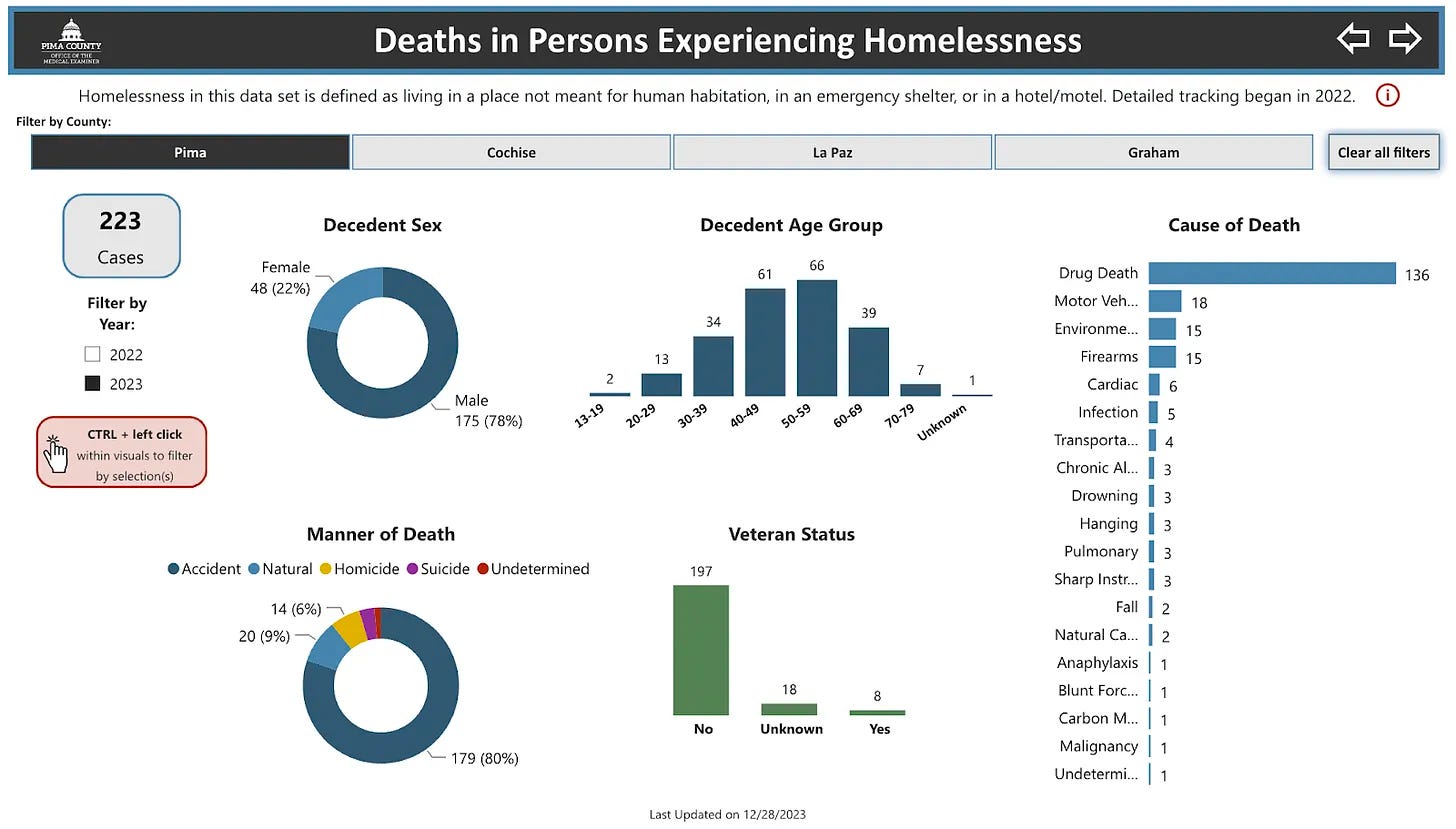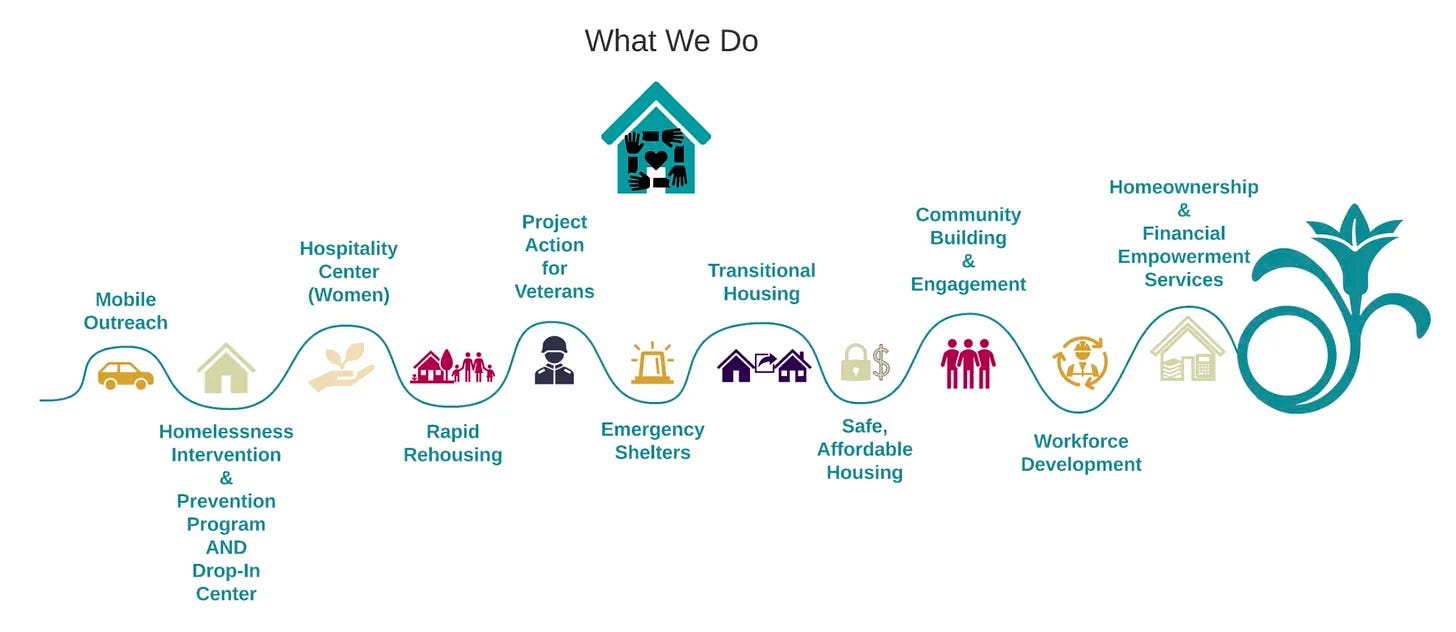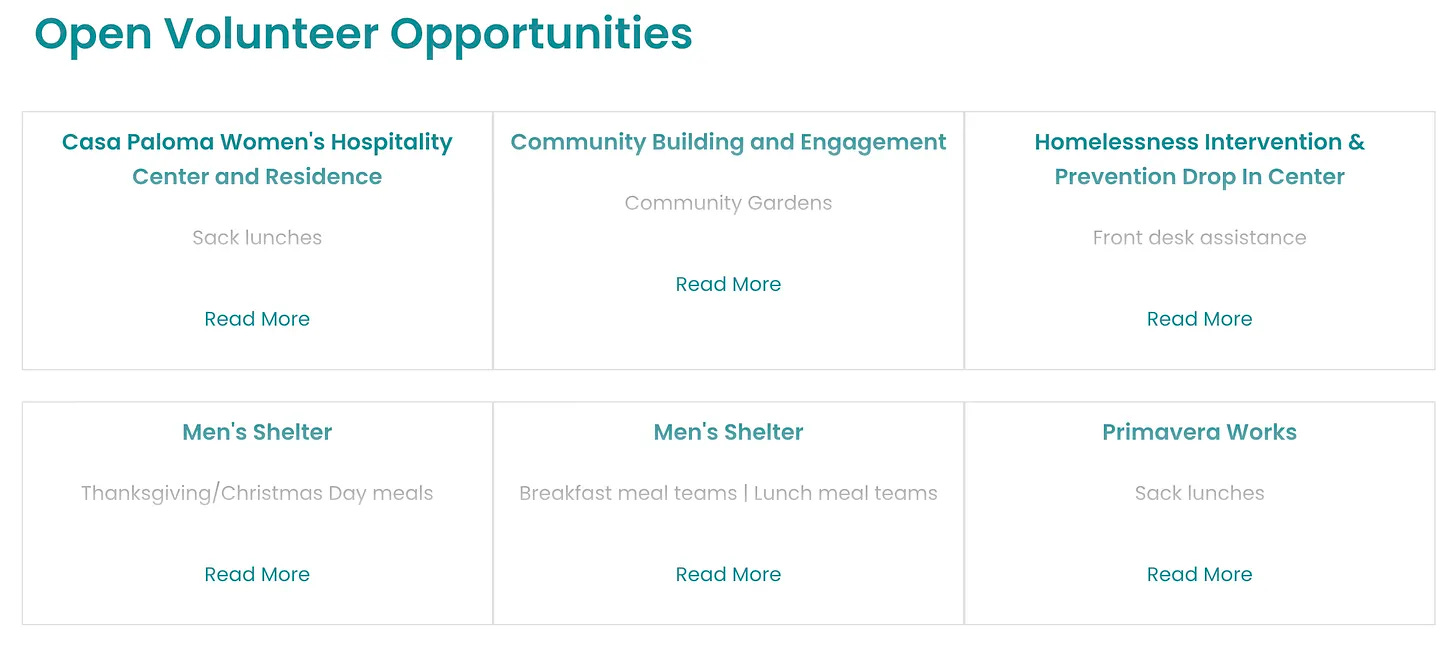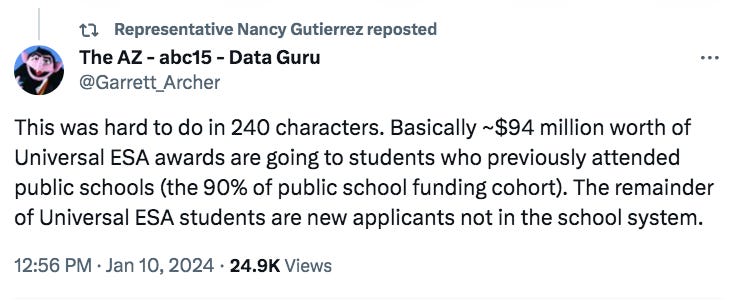The Daily Agenda: Moving the needle after a 50-year standstill
A Tucson nonprofit is ramping up services to address the changing demographic of homelessness … This means more beds and shelter space for women and families … Cochise County supervisors get sued.
For many Tucsonans, Sunday’s snow flurries were an unexpected bit of winter cheer, as social media feeds were flooded with photos and videos of children and adults reveling in the novelty.
But for the hundreds of unsheltered people who call the streets home, there’s nothing fun about freezing temperatures. They can be deadly and every year, Tucson’s extreme temperatures claim lives.
The Pima County Medical Examiner’s Office recorded 223 deaths in Pima County in 2023 for people experiencing homelessness. The majority of these were drug-related, but 15 were attributed to environmental factors and dozens of others were impacted by the trauma that comes with being homeless.
The number of deaths is a sharp increase from the 179 reported in 2022, only four of which were environmental. And nearly 200 of the unhoused people who died in 2022 and 2023 are still unidentified.
At least five of the people who died were regular visitors to and received services from the Primavera Foundation’s drop-in center. Employees and community members honored these and the other unsheltered people who lost their lives during last month’s annual homeless persons’ memorial, which drew a bigger crowd than in previous years.
With the number of unsheltered individuals in Tucson increasing by 300% over the past five years, the foundation is ramping up services and expanding its reach in 2024, with the help of a sizable grant and a new fundraising campaign.
For 40 years, the Primavera Foundation has provided emergency shelter and resources for more than 8,000 families and individuals each year. But with circumstances and demographics changing over the years, Primavera has had to continuously adapt to meet a growing need.
“There was some real intentionality regarding this next year and what needs to be done to not only decrease the number but make it so that none of our neighbors have to die on the streets,” said Primavera CEO Tisha Tallman.
In November, the foundation announced that it had received a $5 million grant from the Bezos Day 1 Families Fund – the largest single gift in Primavera history - which will help support existing programs and fund the creation of a new shelter designed for families.
Families experiencing homelessness now represent more than a quarter of the homeless population nationally, and Tucson is part of this trend, but Primavera is also expanding its ability to serve another fast-growing unsheltered population: Women.
Last year’s annual Pima County Homeless Point-in-Time Street Count, which provides a snapshot of households experiencing homelessness on a single night, identified more than 320 unsheltered women and another 160 who were staying in emergency shelters, transitional housing or safe havens.
Women in Tucson have fewer shelter options than men, Tallman said, with work underway at the foundation to increase availability in its facilities.
There are only 50 emergency shelter beds for women system-wide in Pima County, nine of which are in Primavera’s facilities. The foundation’s new fundraising campaign hopes to double the number of emergency shelter beds for women to 18 and to also increase the number of transitional beds.
Emergency shelter is available for up to 90 days, but people can remain in transitional housing for two years, with Tallman saying their desire is to provide supportive services to women for as long as they need it.
Primavera currently has the only two transitional beds for women in Pima County’s continuum of care, but the foundation hopes to expand that number to four. It’s raising funds through the campaign to build 10 more.
“At the same time that we notice there’s a need for transitional housing, we’ve also found that the longer we’re with women and able to provide supportive services, the better likelihood of positive outcome to permanent housing and economic stability,” she said.
The Bezos funding will help support the expansion of the foundation’s emergency shelters and services, mobile outreach and rent and utility assistance programs, but Tallman is especially excited about the creation of a dedicated family shelter. While the foundation offers services and resources for families, they’re scattered throughout Primavera’s other physical locations. The new family shelter will include traditional and nontraditional supportive services that will be co-created with families.
“What does community and home mean?” Tallman said. “We believe that’s kind of the special sauce or where the magic happens is providing that kind of support, that community, that recreation of home that families need to be permanently housed and find economic stability.”
Helping people build community has always been part of Primavera’s mission. The foundation offers art projects and community gardens at its drop-in centers, which provide people with services and fill basic needs. They also offer a place to seek respite or gather with others.
In addition to services for unhoused individuals or people experiencing poverty, the foundation offers help to people looking to become homebuyers. This includes classes in homeownership and financial education in both English and Spanish and using grant funding to build new homes. Last year, the foundation received funds to build three houses for first-time homebuyers and is in the process of identifying locations.
More than 150 households participate each year in Primavera’s homeownership program, which includes HUD-certified and financial capability-certified counselors.
“The history of Primavera is one that we truly believe that we need to put people in a position to succeed. How can we pick out any one particular component and have a systemic impact?” Tallman said.
The recent passage of Pima County’s Prosperity Initiative opens the door to a big opportunity for the county and its municipalities to come together to address poverty, by making changes to increase equity and build generational wealth.
But Tallman said that it’s important to remember how dire the situation truly is. There’s plenty of work to be done, and we have a role to play in changing the system, she said.
“The needle hasn’t moved much in 50 years on poverty and if that isn’t a motivating factor, I don’t know what is,” Tallman said. “But I think that Tucson truly can be an example.”
The 2024 Everyone Counts! Pima County Homeless Point-in-Time Street Count will be held on the morning of Wednesday, January 24, 2024 from 6 to 11 a.m. The Tucson Pima Collaboration to End Homelessness is looking for more than 300 volunteers to help visit camps as part of the count. Prospective volunteers can sign up here (training is provided) or learn more by visiting the collaboration’s website.
More hot water: The Cochise County supervisors’ election shenanigans in 2022 now include an accusation they didn’t turn over public records, Arizona Public Media’s Summer Hom reports. Washington, D.C.-based American Oversight sued the supervisors, the recorder, and the county after they requested copies of communications and documents related to the supervisors’ push to finger-count all the ballots cast in the 2022 general election, along with records related to hiring legal counsel and the supervisors’ delay in certifying the election.
Housing funds incoming: Tucson is going to get $21 million from the state for affordable housing and homelessness this year, AZPM’s Hannah Cree reports. Most of the money will go to the city, Old Pueblo Community Services, Pima Community and Workforce Development, and Sister Jose Women’s Center. The Tucson House, which city officials plan to renovate, will get an additional $4 million.
Better pay: Both the Tucson and Phoenix city councils approved a requirement for contractors to pay a prevailing wage for public works projects,Tucson Sentinel columnist Blake Morlock writes. In Tucson, the requirement applies to projects worth $2 million or more. It’s still unclear how the new requirement would affect the cost of Regional Transportation Authority projects.
About time: The Pima County Attorney’s Office dropped criminal charges against KJZZ reporter Alisa Reznick, the Arizona Republic’s Sarah Lapidus reports. Reznick was reporting on a pro-Palestine protest outside the Raytheon offices in Tucson on Nov. 30. She was handcuffed by Pima County sheriff’s deputies, even though she clearly let them know she was a reporter. The sheriff’s department said she was on private property.
Times have changed: Cross-border migration today is very different than it was when the U.S. established the bulk of its immigration policies, according to a new report from the Migration Policy Institute. Prior to the early 2000s, most people who migrated across the U.S.- Mexico border were Mexican men traveling without families. Today, families from all over the world make up a large portion of cross-border migrants, the Arizona Daily Star’s Emily Bregel reports. The new report lays out eight recommendations to make policies fit reality, such as more international collaboration to protect migrants and more reliable funding for U.S. border communities.
Back in late August, the Arizona Daily Star published a Q&A with University of Arizona Athletic Director Dave Heeke, in which he addressed then-starting quarterback Jayden de Laura’s involvement in a sexual assault case when he was in high school that became public last spring. In the interview, Heeke went into detail about the department’s process for vetting and running background checks on recruits and their evaluation of de Laura.
“We looked at every ounce of the information, evaluated it. And that's why that individual stayed and remained a member of our program,” Heeke told the Star’s Michael Lev.
If Heeke received and reviewed de Laura’s juvenile file, the documents would become part of the UA’s public record, so we put in a request for all the records relating to de Laura's juvenile charges that were reviewed by Heeke.
The UA responded to the request late last month, saying, “the university does not possess any records responsive to your request as written.”
We’re not sure what to make of that answer or how to ask for those records any differently, but we’re still curious about what the UA knew and when (even though de Laura is transferring out of the UA.)
After we reported on Lisa Rulney’s continued (albeit temporary) employment at the UA earlier this week, Caitlin submitted several public records request to the UA and its athletic department, many in response to questions and comments posed by readers.
The UA isn’t always fast when it comes to filling requests (Caitlin once waited six full months for the school to deny one based on attorney-client privilege), but that doesn’t meant we shouldn’t ask for this public information, especially in situations like the one the school finds itself in now.
What kinds of records do you think we should be asking for from the UA? How about the city or the county? Send your suggestions to caitlin@tucsonagenda.com.
We’re committed to holding the people who make decisions accountable, but that takes time, money and support. Please consider upgrading to a paid subscription to help us continue this important work.










